A New ‘Normal’ through more inclusive spaces
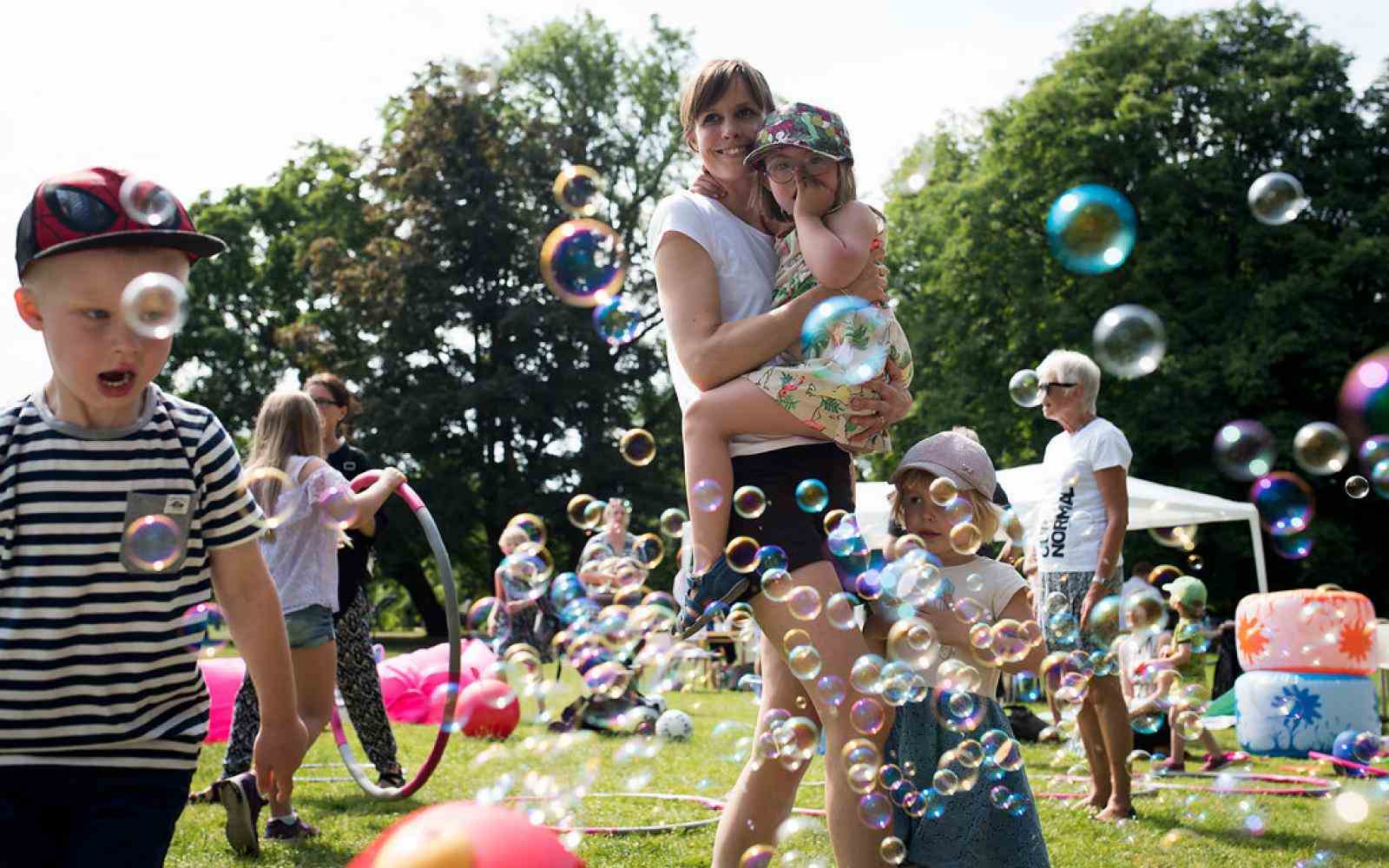
Once Jenny Lindström-Beijar started to hear more about the concept of “social innovation”, she realized that this this term was something she had always brought with her in everything she was engaged in — whether as an animal rights activist in her teenager days, human rights advocate as a university student or corporate social responsibility promoter as a management consultant.
However, the defining moment for her to start her own journey as a social innovator came when her first-born daughter was born with Down syndrome. From that moment, Jenny knew that she would dedicate her life to work for her, and her peers’, future.

Through Jenny's organization, 'Our Normal', families advocate for themselves and work with their own communities using the power of larger groups to influence change. In this common space, caring for children’s disabilities is recorded by parents who represent a diverse range of functional diversities. Our Normal network also enables families to create collaborations with companies and corporations for wider influence.
Hear more from Jenny below about her organization and hopes for connecting with the Dela systems change programme:
-
Our Normal aims to redefine what ‘normal’ actually represents. How has your organization been able to successfully challenge and redefine the concept of ‘normality’?
Jenny Lindström-Beijar: I think the concept of “normality” is interesting in so many aspects because people tend to see it as something consistent – but actually the understanding of what’s “normal” is everchanging. We live in a time when the world more and more talks about the importance of everyone’s differences – but at the same time, a growing part of our society is designed for an extremely narrow norm where people are expected to think, behave and act in similar ways.
Our Normal raises the voices of families of children with disabilities in order to support society in finding the solutions for what inclusivity really means in practice. Through our family network, with experience from many different adaptations in life due to disabilities and special abilities – we have, through the framework of universal design, facilitated several change journeys. This is something we have done together with corporations within both public and private sectors and the results have changed the way they both plan and operate. But I can also see that this is a journey that has just begun.
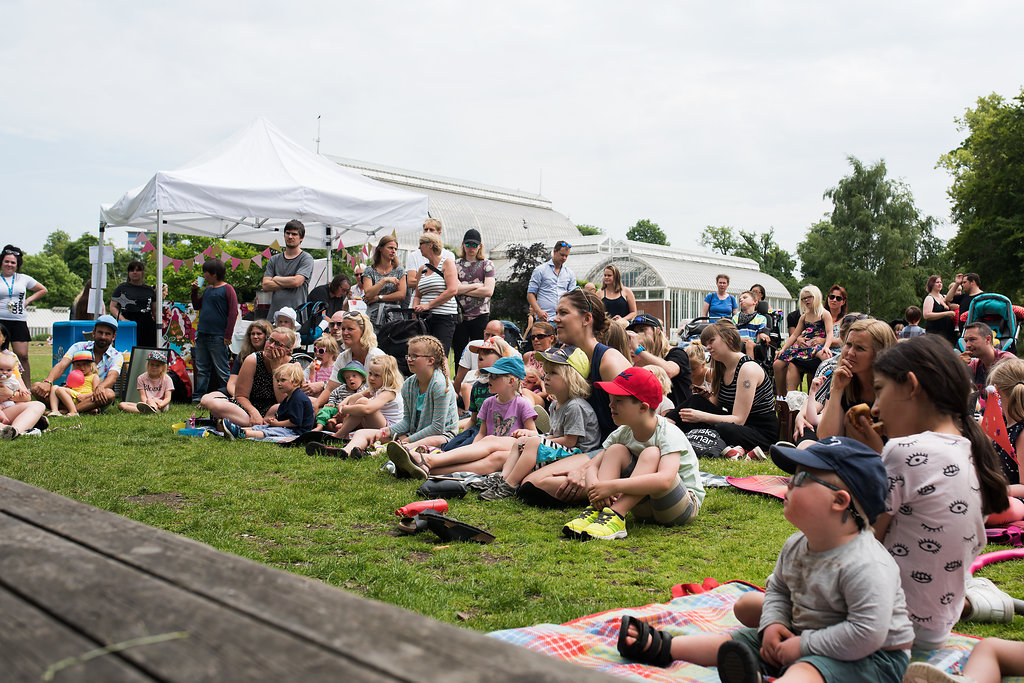
-
How many users did Our Normal positively impact in 2019, 2020 and 2021 respectively?
Jenny Lindström-Beijar: During this period, our webpage reached 60 000 – 100 000 new visitors per year. When it comes to active members, the platform grew with approximately 200-400 per year during those years. We also engaged around 100 families per year in different events. Due to the pandemic, we could not hold physical events but had some digital ones. Furthermore 50-200 families got directly involved per year in our different panels that we engage in collaborations with companies and organizations.
Today we have around 600 active families (most of them from Sweden) on our platform and families find new connections through our platform every month. Through social media, we also reach several thousands of individuals per month interested in disability inclusion.
We took a decision to work for quality in family connections over quantity when we started the platform – and think that today, with a good base of users in place we are ready to take the next step and scale more in the number of active users.
-
How will the Fellowship stipend support Our Normal?
Jenny Lindström-Beijar: Being an Ashoka Fellow really means a lot since it opens doors and international connections to other changemakers also working with big visions, complex problems and limited resources. I have realized that as a social innovator many things can be rather lonely sometimes – “the business model” we social entrepreneurs apply still doesn’t really fit the traditional ways for how businesses and societies operate.
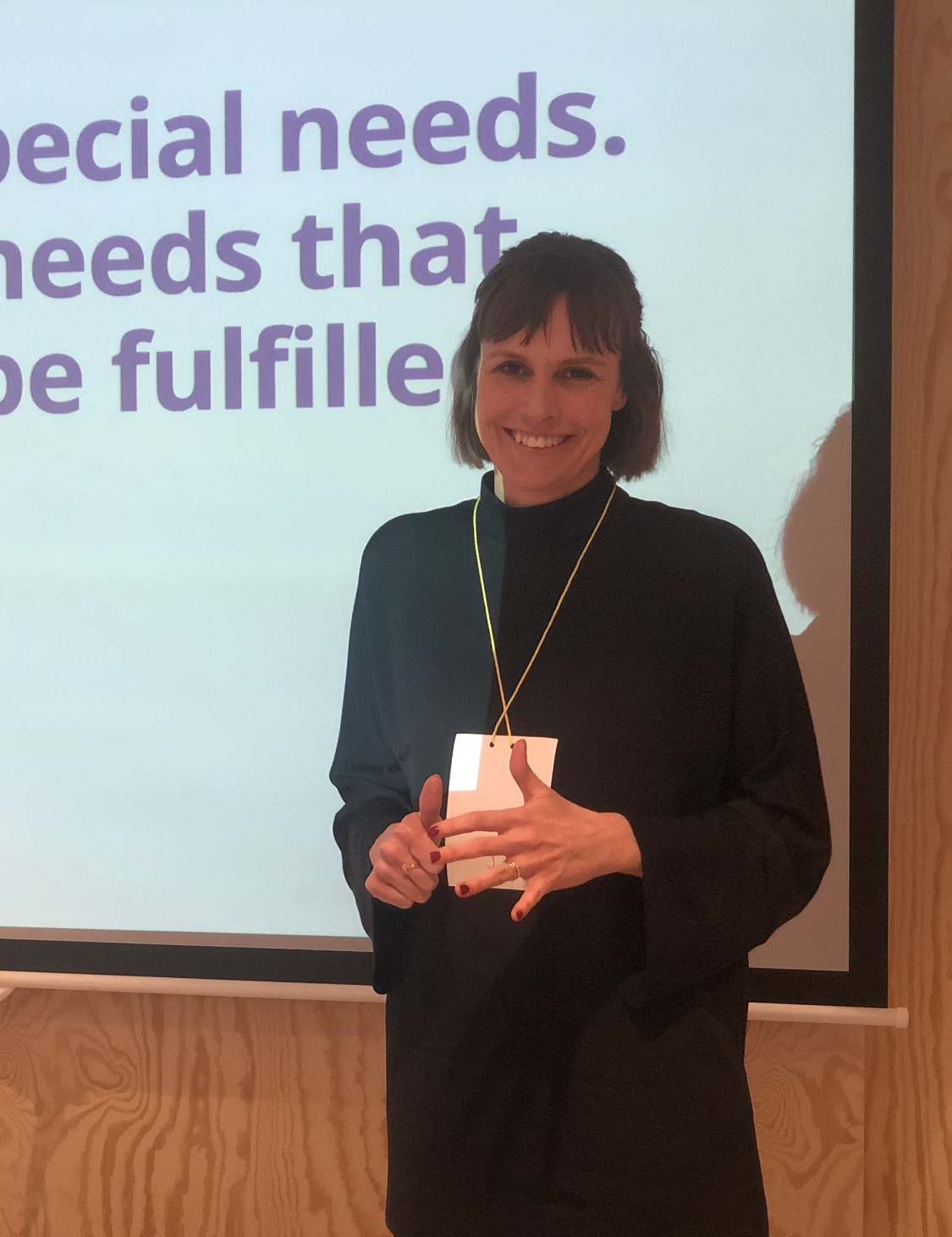
Actually, it surprises me that in 2022 this still is the case – I hope that we soon come to a point where every innovator is a social innovator, and every business is a social business. But until we (hopefully) get there – communities like the one with the Ashoka fellows are crucial in order to get learnings, connections and funding in place so that we can work to scale our initiative. For us, receiving the stipend support will really be helpful in order to be able to take the next steps and scale our model.
-
What do you look forward to as part of the Dela programme?
Jenny Lindström-Beijar: What particularly interests me is the focus the Dela programme places on system change.
Even if I probably never articulated it that way when we first started to build our digital platform, I today realize that this is how we see that Our Normal as an organization can make a real change. We have the different pieces of a puzzle in place that we now hope to put together in order to scale both reach and impact. This is something I am eager to work on together with the other participants of the Dela programme.
-
From your perspective, what is the role of corporate actors in creating long-term social change? (For instance, adding your input on why a collaboration with IKEA Social Entrepreneurship can be key and the recent shift in their communications, removing all mentions of “normal”).
Jenny Lindström-Beijar: I see that society has come to an end with just providing a few separate adaptations for people with diverse abilities – leaving families like ours with the feeling of being excluded from several activities and environments. By this I don’t mean that separate solutions and adaptations shouldn’t be offered at all – sometimes those have a very important role to play and gaps to fill – but we have come to the point where inclusivity must be the norm I’d say.
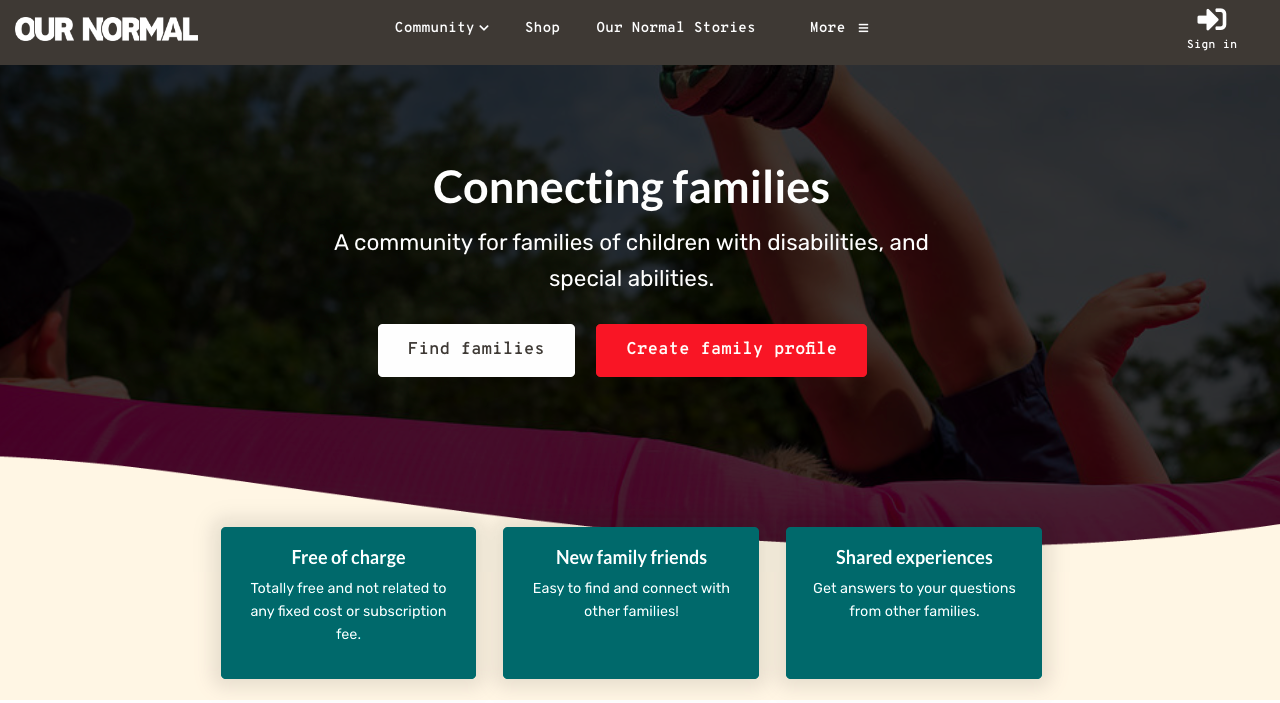
Inclusion is what the consumers of tomorrow, and already today, expect from any company, and it is also in line with the overall ambitions of the Agenda 2030 - “Leaving no one behind”.
I am also totally convinced that many of the most smart, interesting and valuable innovations will come from the area of working with universal design. Through inventing for a broad variety of user profiles and use cases, companies like IKEA can stay competitive, relevant and appreciated by its consumers.
-
Why do you care this much about making change for the good of others?
Jenny Lindström-Beijar: I think it has always been a part of my inner compass – a perspective I got with me from my parents already as a child. I have always cared about social justice, and decided to follow my inner voice of how to act and what to work for/not work for in different situations.
Now, as a parent of a daughter with Down syndrome, I have learnt so much more about how many struggles there are in society for the disability community - also often referred to as the largest minority in the world. I refuse to accept a status quo where those important voices aren’t being heard and listened to. There is still incredibly much to be done to reach social justice within this field; whether it relates to childhood, school, health care, employment, housing or being an active member in society.
-
Throughout your whole changemaking journey, what would you say have been the major learnings?
Jenny Lindström-Beijar: Not an easy question since there have been so many learnings along the way on this journey. But I’d say that finding the right partners is crucial – whether it is in terms of board members, a coach, colleagues, networks or clients. I have spent a lot of time on networking, since I am convinced that the best ideas always come when you think and do things together with others.
Even if I am the founder of the organization, many other people have been, and are, involved in different parts of the journey and I’d say that those relations have meant everything. The journey creating Our Normal actually started with me biking around in the city where I live having short meetings with people I thought could help me along the way making the vision come through.
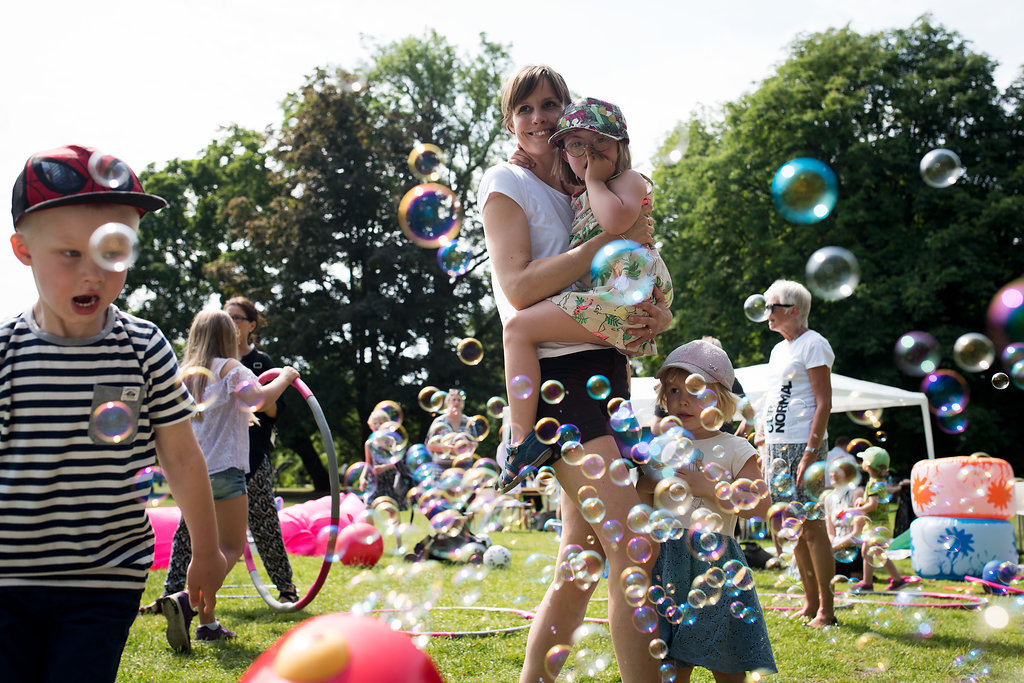
-
What are some key takeaways from Our Normal’s mission and impact thus far that you would like new users of the platform and others to know?
Jenny Lindström-Beijar: Our mission statement is “to enrich the lives for families and children with disabilities, and special abilities, through wider social family networks and more possibilities to live their lives just like anyone else”. The whole idea of the work we do is that in order to be able to “go out on the streets” or to become active in one way or another in sharing ideas for increased inclusivity - you must feel that you are not alone.
The disability community is in many ways split into different organizational silos (which in some cases make perfect sense, e.g. when it comes to medical research etc.), but for families of children with disabilities many topics are similar or related. Common matters are for example, health care, school, spare time activities, friends, siblings and family relations – and then we believe that our voice can become much louder if we also connect families together independent of their different diagnoses (or non-diagnosed for that matter). This is because the first step on an engagement journey for any family and child I’d say is to know that you are not alone.
-
What are your plans for expanding the organization?
Jenny Lindström-Beijar: We will focus on expanding the organization in order to reach more active users outside of Sweden and re-structure the platform a bit so we can work more effectively and have a broader reach with our family panel initiative as well. With those updates and changes we hope that we can find more collaborations with global corporations that want to go from talking into taking action on the topics around disability inclusion and universal design and offerings.
-
And lastly, what do you envision for your organization’s impact and reach in the future? How would you like to see Our Normal grow?
Jenny Lindström-Beijar: I want to see Our Normal established internationally throughout a combination of a wider reach of the platform supporting more and more families in getting new connections, as well as collaborations with brave and smart companies and corporations ready to take action and make inclusion become a real part of their business.